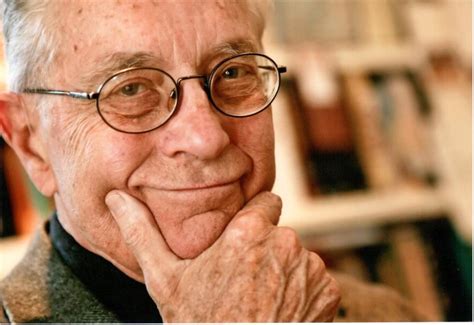A Quote by Michael Behe
It was a shock to people of the nineteenth century when they discovered, from observations science had made, that many features of the biological world could be ascribed to the elegant principle of natural selection.
Related Quotes
Now let me step back from the problem and very generally discuss natural selection and what we know about it. I think it is safe to say that we know for sure that natural selection, as a process, does work. There is a mountain of experimental and observational evidence, much of it predating genetics, which shows that natural selection as a biological process works.
When biblical material touches on the natural world, we can legitimately use the tools of science. Sometimes that shows us - no shock here - that biblical writers didn't know as much as we now know about the natural world - but God knew that when he picked them, so that alone tells us that "doing science" that would satisfy a 21st century - and beyond - audience wasn't what God was interested in with respect to the enterprise of producing Scripture for posterity.
Darwin's principle of natural selection leads to the prediction that the proper way to analyze any evolutionary development is to see the new features as adaptive to environments. And that's a perfectly good principle. The problem is that there are many evolutionary biologists who view everything that happens in evolution as directly evolved for adaptive benefit. And that just doesn't work. Whenever you build a structure for adaptive reasons, the structure is going to exhibit properties that have nothing to do with adaptation. They're just side consequences.
Natural Selection is not Evolution. Yet, ever since the two words have been in common use, the theory of Natural Selection has been employed as a convenient abbreviation for the theory of Evolution by means of Natural Selection, put forward by Darwin and Wallace. This has had the unfortunate consequence that the theory of Natural Selection itself has scarcely ever, if ever, received separate consideration.
Of all the men who attacked the flying problem in the 19th century, Otto Lilienthal was easily the most important. ... It is true that attempts at gliding had been made hundreds of years before him, and that in the nineteenth century, Cayley, Spencer, Wenham, Mouillard, and many others were reported to have made feeble attempts to glide, but their failures were so complete that nothing of value resulted.
Given that the nineteenth century was the century of Socialism, of Liberalism, and of Democracy, it does not necessarily follow that the twentieth century must also be a century of Socialism, Liberalism and Democracy: political doctrines pass, but humanity remains, and it may rather be expected that this will be a century of authority ... a century of Fascism. For if the nineteenth century was a century of individualism it may be expected that this will be the century of collectivism and hence the century of the State.
THE NINETEENTH CENTURY SPREAD OF CHRISTIANITY WAS DUE PRIMARILY TO A NEW BURST OF RELIGIOUS LIFE EMANATING FROM THE CHRISTIAN IMPULSE. . . . NEVER IN ANY CORRESPONDING LENGTH OF TIME HAD THE CHRISTIAN IMPULSE GIVEN RISE TO SO MANY NEW MOVEMENTS. NEVER HAD IT HAD QUITE SO GREAT AN EFFECT UPON WESTERN EUROPEAN PEOPLES. IT WAS FROM THIS ABOUNDING VIGOR THAT THERE ISSUED THE MISSIONARY ENTERPRISE WHICH DURING THE NINETEENTH CENTURY SO AUGMENTED THE NUMERICAL STRENGTH AND THE INFLUENCE OF CHRISTIANITY.
You can be a thorough-going Neo-Darwinian without imagination, metaphysics, poetry, conscience, or decency. For 'Natural Selection' has no moral significance: it deals with that part of evolution which has no purpose, no intelligence, and might more appropriately be called accidental selection, or better still, Unnatural Selection, since nothing is more unnatural than an accident. If it could be proved that the whole universe had been produced by such Selection, only fools and rascals could bear to live.
The thesis that the living creatures have always been composed different species was established in a time where no sufficient observations had been made and when science hardly existed. This thesis is denied every day by those who have made accurate observations, who have long time observed nature and who have had the benefit from studying our musei's large and rich collections.

































